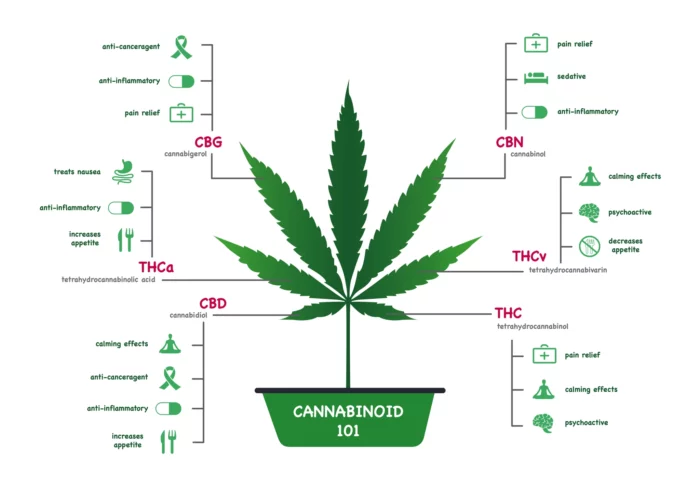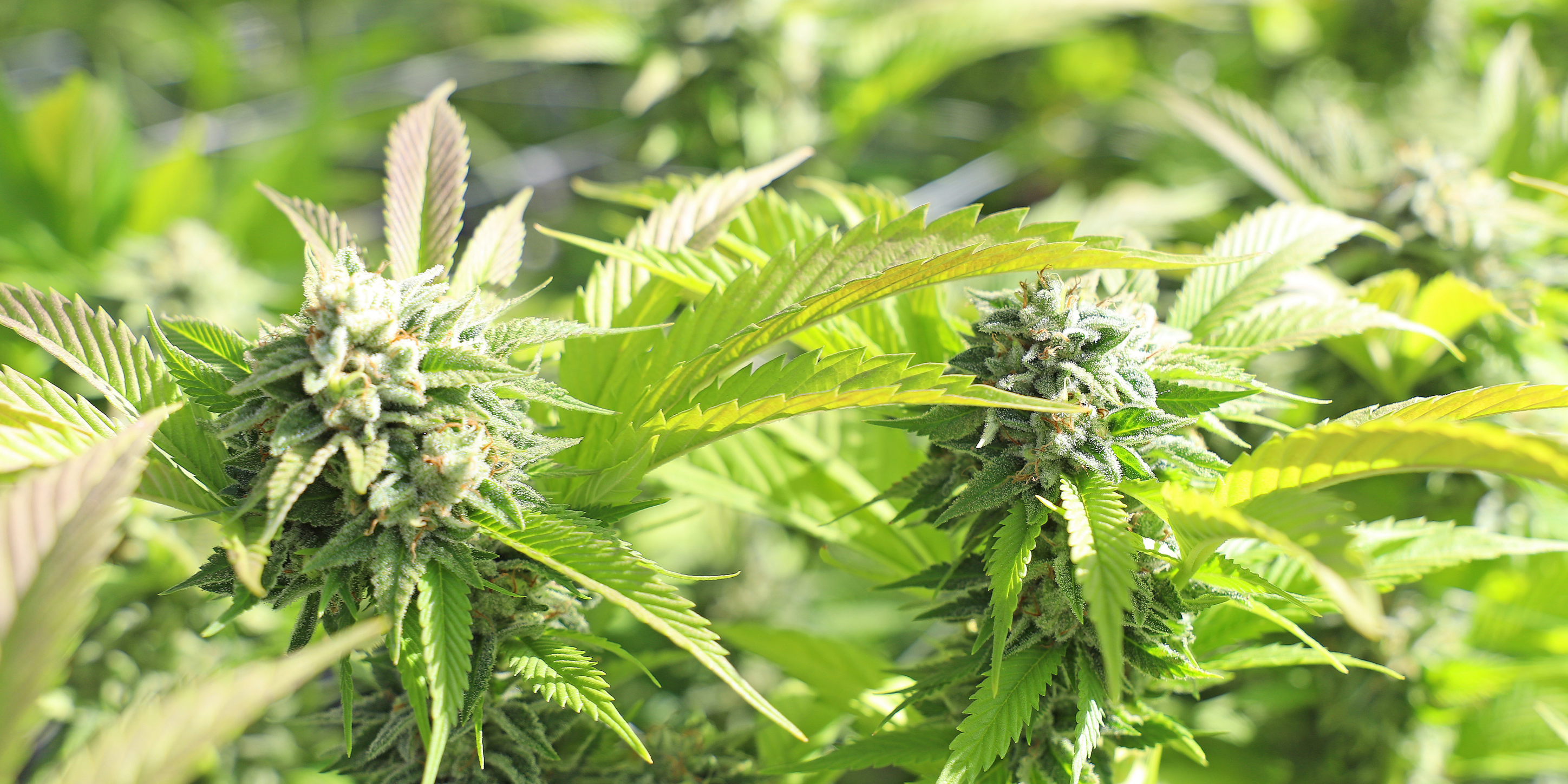THCV or tetrahydrocannabivarin is a cannabinoid that offers distinct effects from the well-known THC and CBD.
What is THCV?
THCV (tetrahydrocannabivarin) is similar to other cannabinoids since it is produced within the trichomes of cannabis. Alike its chemical sibling, THCV begins its life with the precursor cannabinoid CBGV-A. With the help of enzymes, CBGV-A is then converted into THCV-A (tetrahydrocannabivarin acid) and other cannabinoids. The final step needed to convert THCV-A to THCV is a process called decarboxylation, which involves the application of heat to the cannabinoids.
Its molecular formula is quite close to its cousin THC. Both THC and THCV bind to the CB1 receptors of our nervous system.
What are the effects of THCV?
THCV has a double effect on the body. In low doses, THCV acts as a CB1 receptor antagonist. which means that alike CBD, it inhibits the effects of THC. At higher doses, however, it acts as an agonist of this same receptor and therefore enhances the effect of THC. In short, THCV combines the effects of THC and CBD but in a different way.

THCV increases the euphoric sensation that THC gives during half of its action time. It can be found mainly in the Sativa variety because it provides a more energetic and euphoric high than varieties with low THCV levels. THCV also has the advantage to block two notorious negative effects of THC: immediate memory loss and increased blood flow.
The effect of THCV is intense and stimulating. THCV gives a clearer cerebral effect than THC for a short period of time. THCV, unlike THC, is believed to suppress appetite. This makes it a potentially useful option in weight management, however, this hasn’t been proven by science yet.
THCV could be a medical treatment.
In addition to being a treatment for weight management, THCV would help regulate insulin and blood sugar levels for diabetics. The GW Pharmaceuticals laboratories have also already marketed anti-inflammatory and anticonvulsant treatments with THCV.
Other benefits include the reduction of anxiety attacks due to post-traumatic stress syndrome. THCV could also work as a treatment for Alzheimer’s and Parkinson’s disease. However uncertain, THCV would reduce psychotic disorders causing the onset of schizophrenia. Scientists are now trying to isolate THCV from THC. Patients could therefore obtain an almost similar treatment to THC but without psychoactive effects.





